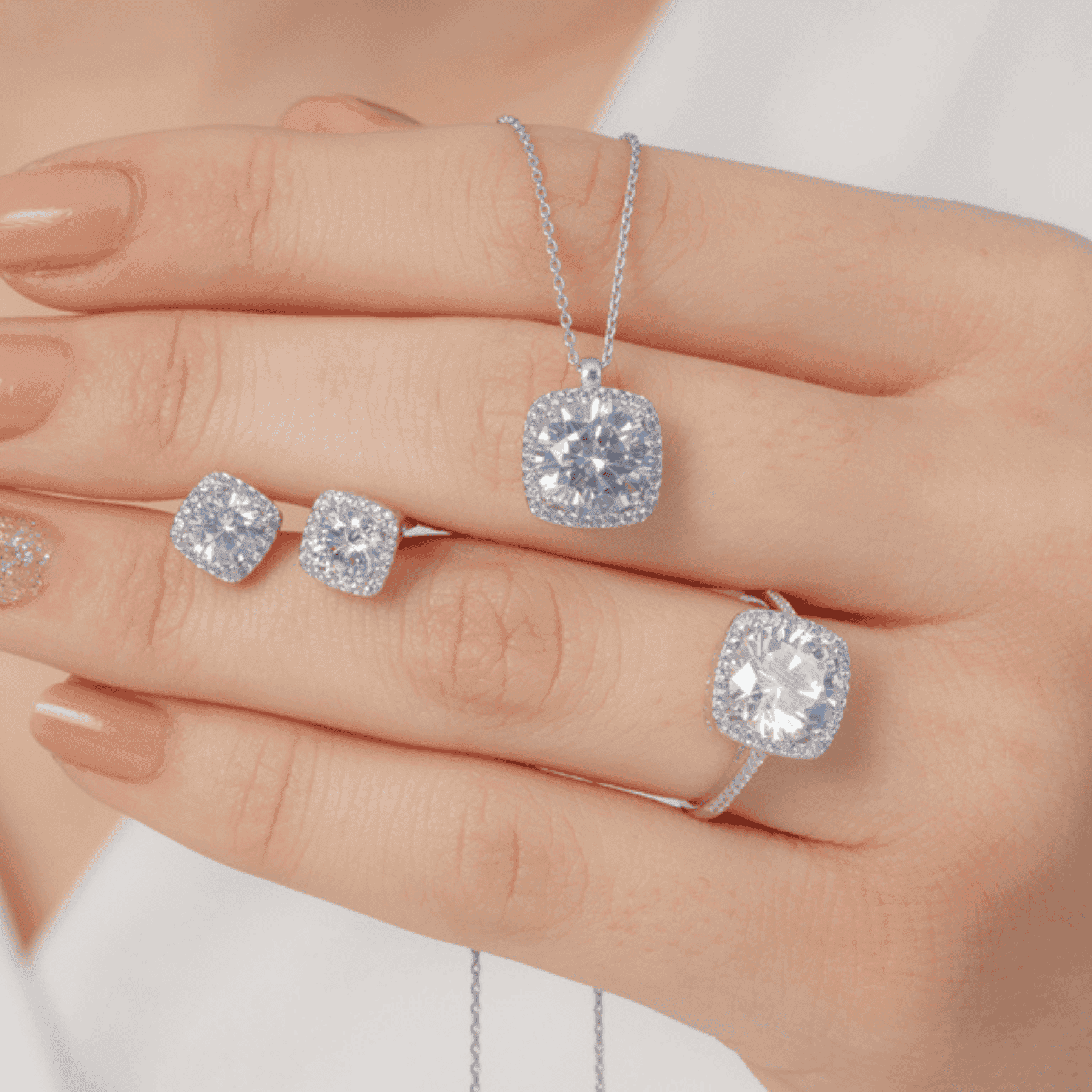-4dc737dc-58b3-48ec-b9fd-d68c889cafa5.webp&w=3840&q=75)
Watches & Jewellery
•05 min read

Perfumes are more than just fragrances—they are an art form, a statement, and a reflection of individuality. In the world of luxury scents, the discussion between artisan perfumers and designer perfumes captivates many. This post will help you understand the key differences between these two categories, from the craftsmanship behind handcrafted perfumes to the mass appeal of designer scents.
Artisan perfumers are creators who place great emphasis on individuality and craftsmanship. They carefully blend ingredients into bespoke scents that not only evoke emotions but also reflect personal style. Each fragrance in an artisanal fragrance collection is created with attention to detail, often produced in limited batches. In these small batches, every step matters, from selecting rare ingredients to delivering the final handcrafted perfumes that celebrate authenticity.
The key attributes of artisan perfumery include:
Handcrafted perfumes: Every scent is blended with care and often features unique, natural components.
Bespoke scents: Many artisan perfumers offer customized fragrances, allowing you to create a perfume that is uniquely yours.
Artisanal fragrance collections: These collections are thoughtfully curated, often telling a story and capturing emotions.
At the heart of artisan perfumery lies an unwavering commitment to craftsmanship. This approach is evident in every part of the process, from choosing the best natural ingredients to the complex art of scent blending. The result is niche perfumery that stands out for its originality and authenticity, elevating the experience of wearing high-end scents. The passion and dedication involved in crafting bespoke scents make each creation unique, thereby setting them apart from mass-produced alternatives.
Designer perfumes are the product of high-profile fashion houses and luxury brands. Unlike artisan perfumers, these scents are designed with a broader audience in mind and are mass-produced to achieve wide availability. This approach helps in delivering luxury fragrances that carry the prestige of their origin, making them accessible and appealing to many. Even though designer perfumes boast high-end scents and incorporate exclusive colognes into their collections, they often prioritize brand identity and market trends over individual uniqueness.
The characteristics of designer perfumes include:
Luxury fragrances: They are synonymous with high fashion and carry a sense of exclusivity tied to a well-known image.
High-end scents: Their formulas are designed to appeal to a wide audience, ensuring a consistent quality experience.
Exclusive colognes: Special editions may be available, yet they do not usually offer the personalized touch found in artisan creations.
Designer perfumes are built on commercial success, surrounded by extensive marketing and celebrity endorsements. They are crafted to maintain a recognizable brand identity and are distributed globally. This business-driven approach often means that while designer perfumes are luxurious and consistently high quality, they do not provide the same level of customization or personal touch as artisan perfumers. The focus stays on mass appeal rather than the intricate nuances of craftsmanship in perfumery.

One of the major differences lies in how the perfumes are made. Artisan perfumers focus on craftsmanship by using rare, natural ingredients to create customized fragrances. Their work is a labor of love, resulting in handcrafted perfumes that are highly unique. In contrast, designer perfumes are developed through standardized formulas intended to meet the needs of a large market. This clear distinction in production methods shapes how each fragrance is experienced, from the personal touch of bespoke scents to the broad appeal of luxury fragrances.
Exclusivity is a hallmark of artisan perfumery. These perfumes are typically produced in limited editions, ensuring that each scent retains its unique identity. Conversely, designer perfumes are created for easy accessibility and are available in many retail outlets. This difference not only affects the consumer experience but also influences the value and perception of each fragrance. Customized fragrances from artisan perfumers add a personal element that mass-produced designer perfumes rarely offer.
Price is another key differentiator between these two types of perfumes. Artisan perfumes usually demand a higher price due to the high-quality ingredients and the meticulous effort in each handcrafted perfume creation. These luxury fragrances often represent the epitome of artisanal craftsmanship. On the other hand, designer perfumes are priced with broader accessibility in mind, even though they still fall under the umbrella of high-end scents. The price difference reflects the underlying production methods and the overall value offered by both types.
For those who see fragrance as a form of self-expression, artisan perfumery delivers a personal experience that designer perfumes may not match. The bespoke nature of these perfumes ensures that each scent is tailored specifically to the wearer. Whether you are drawn to niche perfumery or prefer customized fragrances, artisan creations allow you to wear a signature scent that is truly one of a kind. This level of self-expression is similar to the way you might select a piece of curated jewellery or an authentic watch that speaks to your personality.
Another appealing aspect of artisan perfumery is its commitment to sustainability. Many artisans prioritize sourcing natural ingredients and avoiding harsh synthetic additives, aligning their practices with modern ethical standards. This focus on responsible production not only enhances the quality of high-end scents but also reinforces the values of environmental accountability. Such dedication to sustainable practices resonates well with consumers who appreciate both the art and the impact behind their fragrance choices.
Insight Corner: The Art Behind Artisan Perfumery
Did you know that artisan perfumers often spend years perfecting a single fragrance? Unlike designer perfumes, which rely on standardized formulas, each artisan creation is the result of extensive experimentation and deep emotional connection to the craft.

Much like the authenticity found in high-end watches and curated jewellery collections, artisan perfumes highlight the beauty of meticulous craftsmanship. Each handcrafted perfume is built with the same dedication that you see in a well-designed analog watch or a beautifully crafted piece of jewellery. This common emphasis on detail and quality creates a timeless appeal that resonates with those who appreciate luxury in every aspect. When style meets substance, whether in a fragrance or an accessory, the result is a harmonious blend of art and identity.
Both artisan perfumery and designer accessories are geared towards a discerning audience that values exclusivity and personal connection to the product. Niche perfumery, with its bespoke scents and handcrafted perfumes, offers a level of luxury that complements the curated jewellery and authentic watches often sought by style-savvy consumers. The shared focus on craftsmanship and personalization elevates the overall experience of luxury, ensuring that every piece tells a story of passion and innovation.
Artisan perfume refers to fragrances crafted by independent perfumers who focus on quality, originality, and exclusivity, often using rare or natural ingredients.
While opinions vary, renowned artisan perfumers are celebrated for their innovative creations that contribute significantly to niche perfumery.
A professional perfumer is often referred to as a "nose" or "master perfumer," highlighting their expertise in scent composition.
The four types of perfume are Parfum (pure perfume), Eau de Parfum, Eau de Toilette, and Eau de Cologne, categorized by their concentration of fragrance oils.
Artisan perfumes are generally more expensive due to their use of rare ingredients and the labor-intensive, small-batch production process.
Artisan perfumery and designer perfumes offer distinct experiences, each with its unique focus on production and consumer appeal. While designer perfumes deliver brand prestige and wide availability, artisan fragrances stand out because of their craftsmanship, exclusivity, and personalized touch. For those who value self-expression through distinctive scents, exploring the world of niche perfumery can be a truly enriching journey that perfectly complements the craftsmanship seen in watches and curated jewellery collections.